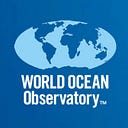An Ocean Literacy Declaration
Through the realization of Ocean Literacy and its outcomes exists the catalyst to change the way we see the world.
The first Ocean Literacy World Conference was held in Venice, Italy 7–8 June 2024. The participants endorsed the Venice Declaration for Ocean Literacy in Action. The Declaration is a statement of intent for the Ocean Literacy community as it seeks to shape the agenda at the United Nations Ocean Conference (UNOC) to be held in Nice, France, in June 2025, and more generally to engage society to regenerate the most valuable ecosystem on our Planet.
As we continue to look for ways to convert knowledge to action, we recognize the imperative to deliver ocean science to the next generation through education and communication, with the goal of creating a global constituency of informed “Citizens of the Ocean” that will use that information to protect and sustain this most essential natural system on which we must depend for survival. We have often discussed here on World Ocean Radio the concept and principles of “ocean literacy” as the distillation and focus of that effort in formal and informal educational opportunities worldwide.
The outcome to date has been disappointing, primarily in the face of existing pedological methods, independent disciplines, and administrative resistance to change. In that context, the World Ocean Observatory has created a “virtual aquarium,” World Ocean Explorer, that is designed to bring the extent and effect of an integrated ocean curriculum based on the full spectrum of the ocean’s involvement with every aspect of our lives, available via the internet to any classroom anywhere, at any time, on any device, in any language, at no cost to the school, the student, or the curious individual. Bringing that transformational tool to bear as an unexpected innovation and approach has been a challenge.
Internationally, the ocean literacy “movement” has been defined by independent teachers, marine science education associations, and at the United Nations under the purview of UNESCO and the UN Intergovernmental Oceanographic Commission, where emphasis and resources have been limited by competing interests and funds.
But that may now have dramatically changed.
In Venice, in June, an Ocean Literacy World Conference was convened by the IOC, an event that may signal a turning point in both concept and adoption based on the coherence and resolve of the delegates as articulated in Sea Beyond, A Declaration for Ocean Literacy in Action: How to Engage Society to Regenerate the Most Valuable Ecosystem on our Planet.
In its final statement, there was a welcome energy and openness that had been hard to find in the prior, less iterated expressions of the idea. Let me list the recommended actions: first, a call to amplify the tenets of ocean literacy beyond the traditional classroom, to government administrators, engineers, architects, lawyer, and managers, to provide an ocean context, or ethos, to guide planning, permitting, and execution of ocean-related project; second, to launch trans-disciplinary programs to merge natural, social, and behavioral sciences with the humanities, spirituality, and coastal communities; third, to enhance ocean literacy funding to extend educational and technical innovation; fourth, to raise awareness of the complex interconnection between ocean health, biodiversity, human well-being, and climate change; fifth, to co-create programs for resilience in vulnerable communities heretofore forgotten; sixth, to safeguard and promote marine cultural heritage as an expression of identity and belonging; seventh, to disseminate multi-sensorial media and educational tools to engage diversified audience through ocean communications; and, eighth, to foster a sustainable ocean literate work-force.
Every one of these objectives and actions lifted my spirits. At long last, the power of the ocean was asserted to be a commonality among all peoples — as an historical force, past to present, as a context for human enterprise and welfare, as a creative extension in defiance of convention, as a visionary space through which to filter transformational strategies for the future. Suddenly, I felt a new inclusiveness, enveloped by the wisdom of the sea. Suddenly, I saw a way forward through the formal structures of education. Suddenly, I had confidence that the barriers to ocean awareness could be broken and extended to new audiences and to coming generations. Suddenly, I was newly aware, beyond wishful hope, of the true possibility of success through action welcoming the ocean’s embrace, benefiting from its teachings, and affirming through the exchange of reciprocal value with the enduring power of Nature.
I confess I was surprised by my reaction to this declaration of intent. I was astonished, grateful, inspired, and newly motivated to work to realize its exhortation. The ocean is a prism, refracting light, that through the realization of ocean literacy and its outcomes will change the way we see the world.
Read the full Venice Declaration for Ocean Literacy in Action.
Get involved in W2O initiatives in support of ocean literacy.
PETER NEILL is founder and director of the World Ocean Observatory, a web-based resource for science-based information and educational resources about the health and future of climate and ocean. Peter is host of World Ocean Radio, a weekly syndicated radio show and podcast upon which this blog is inspired. World Ocean Radio celebrated 15 years in 2023, with nearly 800 episodes produced to date.
